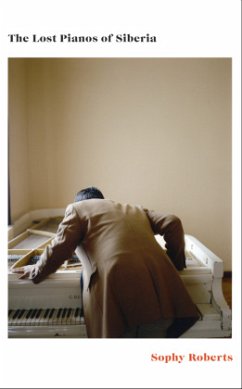§Siberia's story is traditionally one of exiles, penal colonies and unmarked graves. Yet there is another tale to tell.
Dotted throughout this remote land are pianos - grand instruments created during the boom years of the Nineteenth Century, and humble, Soviet-made uprights that found their way into equally modest homes. They tell the story of how, ever since entering Russian culture under the influence of Catherine the Great, piano music has run through the country like blood.
How these pianos travelled into this snow-bound wilderness in the first place is testament to noble acts of fortitude by governors, adventurers and exiles. That stately instruments might still exist in such a hostile landscape is remarkable. That they are still capable of making music in far-flung villages is nothing less than a miracle.
But this is Siberia, where people can endure the worst of the world - and where music reveals a deep humanity in the last place on earth you would expect to find it.
Dotted throughout this remote land are pianos - grand instruments created during the boom years of the Nineteenth Century, and humble, Soviet-made uprights that found their way into equally modest homes. They tell the story of how, ever since entering Russian culture under the influence of Catherine the Great, piano music has run through the country like blood.
How these pianos travelled into this snow-bound wilderness in the first place is testament to noble acts of fortitude by governors, adventurers and exiles. That stately instruments might still exist in such a hostile landscape is remarkable. That they are still capable of making music in far-flung villages is nothing less than a miracle.
But this is Siberia, where people can endure the worst of the world - and where music reveals a deep humanity in the last place on earth you would expect to find it.

